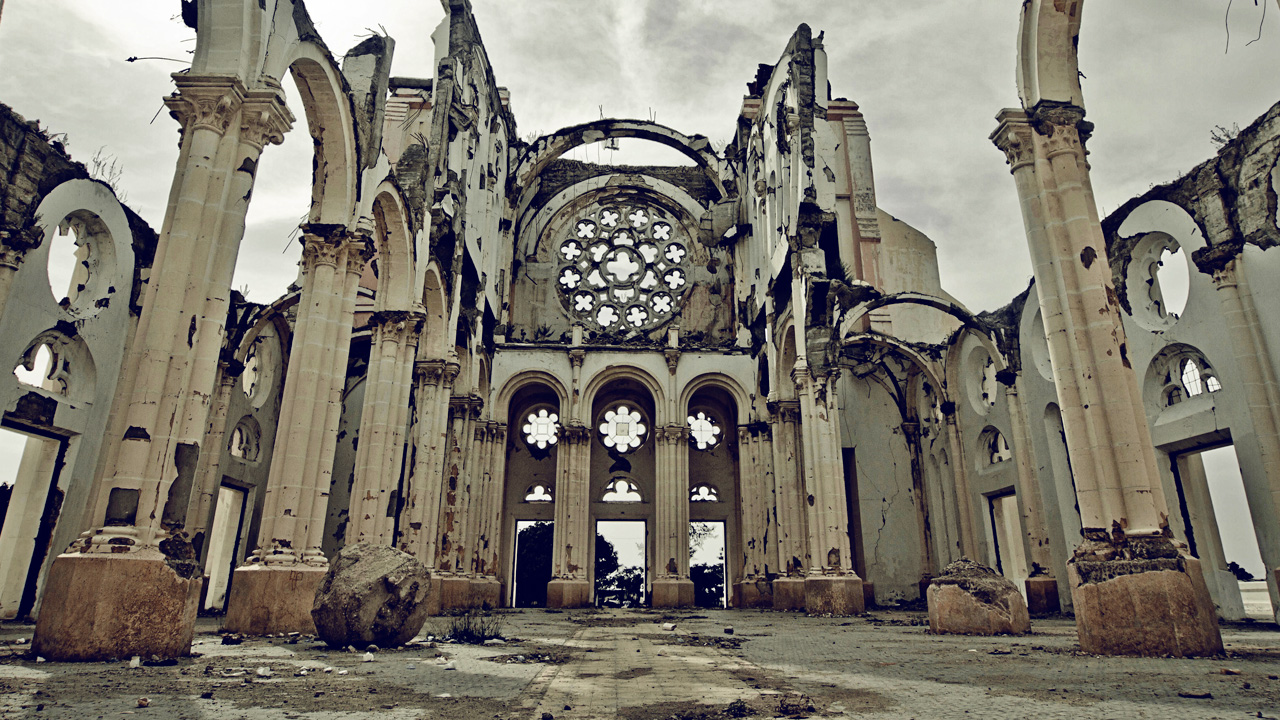Persecution: The New Normal

As a new believer in high school, I fell in love with Jesus and began to devour his Word. One of my first stops was the book of Acts. I envisioned myself as one of the disciples spreading the gospel around the known world. I vividly remember thinking, “I’m glad the Roman Empire collapsed, and we live in a more civilized world now. Thank you, God, that all that persecution is over and done with.”
Whatever made me think such suffering was off the table? Especially when Jesus clearly promised persecution for his followers.
Just look at contemporary headlines. Even secular news sources now regularly cover the growing inhumane treatment of Christians throughout the world:
- Forty Egyptian churches burned to the ground.
- House-church leaders sentenced to Iran’s infamous Evin Prison.
- Eighty Christians murdered in North Korea for merely owning a Bible.
- Believers nailed to crosses in Syria.
And that’s the news from just one month in 2014.
After that, it got really bad.
In summer 2014, a shocked world witnessed the phenomenal rise of ISIS, now known as The Islamic State. Within weeks, a path of destruction swept through Syria and Iraq, leaving unimaginable carnage in its wake. The brutality of ISIS and its global Jihadist agenda is reminiscent of the Assyrian Empire in the Old Testament. The Assyrians leveled villages and cities with such ferocity that, in the eighth century BC, the mere mention that Assyrians were on their way prompted some villages to commit mass suicide rather than be taken as slaves, allow women and children to be abused and kidnapped, to be impaled, or skinned alive. In a fascinating twist of history, ISIS was birthed in the same region as the Assyrians, and one of its major objectives is now clear: to eradicate any presence of Christianity.
But ISIS is not alone in its quest against biblical faith. Christianity is under fire across the globe. Jesus-lovers are hated in dozens of countries and often pay a gruesome price for following him. Killing fields have become common.
But I do not write this to sound the alarm for the persecuted church. Others have already sent out the alert, and thankfully many are listening. What the alarms can’t tell us, though, is the internal human cost of following Jesus in the twenty-first century.
Jesus said his followers would experience persecution for merely being associated with him. He also predicted an escalation of intensity over time. On the night before he went to the Cross, Jesus spelled out the details to his disciples: “They will put you out of the synagogue; in fact, the time is coming when anyone who kills you will think they are offering a service to God” (John 16:2).
The message of Jesus’s words to his followers then can certainly be applied to Christians in threatening situations today. In areas rife with Muslim fundamentalism or controlled by sharia law, agreeing to return to Islam is the only way of escape for a believer with a knife to his or her throat. In places such as Iran, only a full confession of apostasy, a complete list of names of underground house-church leaders, and a reconversion to Islam can unlock the prison gate. In Mosul, Iraq, ISIS gave Christians four choices: convert to Islam, pay a large and unaffordable Jizya tax, leave, or die.
The New Face of Christianity
Oppressors over the centuries have never recognized that persecution routinely accelerates the spread of the gospel and the growth of the church, because Jesus’s message of love and reconciliation thrives in a climate where hostility, danger, and martyrdom are present. Persecution and the spread of the gospel are often as inseparable as conjoined twins. Suffering often propels the growth of Jesus movements around the world.
So in the Hamas-controlled Gaza, former Muslims worship Jesus right under the noses of terrorists. In Syria and Iraq, ISIS may grab headlines with beheadings and inhumane torture, but underground churches are flourishing. In Saudi Arabia, Muslims worship Jesus in Mecca and Medina, the heart of Islam.
As inconceivable as it is to Christians who have not faced life-threatening persecution, the suffering often produces immense blessing through the radical transformation of individual believers. Each person comes away marked, never truly returning to the same life. Sometimes survivors are difficult to recognize even by their own families because, in the midst of their brutal affliction, they have experienced Christ in an hour of need like few of us ever do.
Persecuted believers have become the new face of genuine Christianity. They are filled with passion to live or die for Christ, and we in the West have much to learn from them.
Our brothers and sisters who live in prison, persecution, and danger have learned to cling to Christ. Like a drowning person clutching a life preserver, the believer has only Jesus. And what have these believers discovered? That Jesus alone is always more than enough to take them by the hand through trial after life-threatening trial—not around the pain, but all the way through it.
The families of the twenty-one Egyptian Christians beheaded on a beach in Libya last February at the hands of ISIS now speak openly about the privilege of having a family member who was a martyr for Jesus. Jamal from Jordan recently visited the families of the martyrs, and one mother said: “To think that Jesus could have chosen any family in the world for the high honor of dying for him, and yet he gave us this great honor. I would give all of my sons to die for him.”
Malik, a Christ-follower from the Middle East, once told me, “Every Christian should go to jail at least once in life because of their faith in Christ. It’s good for you!” Can you relate to that? This former Muslim adds, “You’ll never be the same after experiencing the loneliness of a jail cell. But then there is great elation that comes when you realize Jesus is capable of filling 100 percent of that loneliness—and more. My deepest spiritual lessons were learned on the cold floor with no one there—but Jesus and me.”
Malik is not alone in this conviction. A new generation has arrived. Widespread persecution can’t stop the faithful who spread Jesus’s love in the face of grave danger. Check out the news, and note the places where war, poverty, racism, seething religious violence, and killing seem to own the day. Right in the middle of it all, Jesus’s church is thriving.
A Message to You
If we were to take our worldview from the news, it would be easy to conclude from the acceleration of Christian persecution that followers of Christ are on the run. We might think that our brothers and sisters in the faith are systematically being crushed by the forces of Islamic terrorism, fanatical dictators, and hostile nations. Yet the opposite is actually true.
In 2010, Operation World made some startling observations about Jesus’s church. After years of objective on-the-ground research, they were able to determine that the fastest-growing evangelical church per capita is in . . . are you ready? Iran. The second fastest-growing per capita church is in Afghanistan. And here’s some news you may not have heard: more Muslims have come to faith in Christ in the past fourteen years than in the past fourteen centuries of Islam.
A new Jesus movement is erupting around the world, and persecuted believers are leading the way. They have been given a gift from God that most of us would not want: the ability to endure enormous suffering and emerge even stronger. Church leaders in obscure places—outposts for the faith—are fully aware that passionately following Jesus has them on a collision course with hardship. They will be beaten, imprisoned, tortured, and maimed. Some will be killed. But unfazed, they move forward, even more in love with Jesus Christ.
So, is Christianity winning or losing?
Perhaps, the final harvest of souls is in full swing before Jesus returns, and as our twenty-century history makes clear, when the gospel spreads, so does persecution. Yet, stories of victory that sound like something straight out of Hebrews 11 are coming in from the front lines of the war raging around Jesus’s church. The battle is fierce, and it’s not letting up.
Yet, this is one of our finest hours.
About the Contributors

Thomas James Doyle
TOM DOYLE (MABS, 1983) is the Middle East director for e3 Partners and has authored seven books, including Killing Christians: Living the Faith Where It’s Not Safe to Believe (Thomas Nelson).

